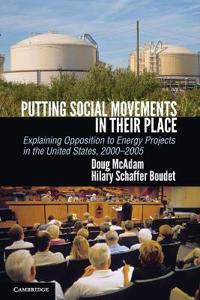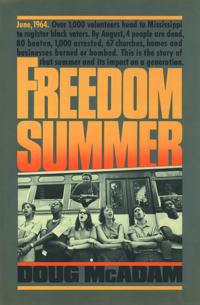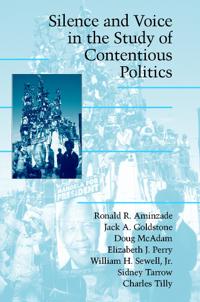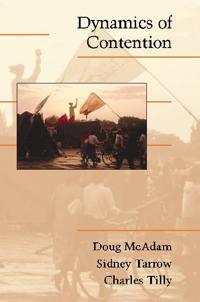Political Process and the Development of Black Insurgency, 1930-70 (Pocket)
avMcAdam, Doug
ISBN: 9780226555539 - UTGIVEN: 1999-11-10In this classic work of sociology, Doug McAdam presents a political-process model that explains the rise and decline of the black protest movement in the United States. Moving from theoretical concerns to empirical analysis, he focuses on the crucial role of three institutions that foster protest: b[...]
Putting Social Movements in Their Place (Pocket)
avDoug McAdam, Hilary Schaffer Boudet, Doug McAdam
ISBN: 9781107650312 - UTGIVEN: 2012-05The field of social movement studies has expanded dramatically over the past three decades. But as it has done so, its focus has become increasingly narrow and 'movement-centric'. When combined with the tendency to select successful struggles for study, the conceptual and methodological conventions [...]
Freedom Summer (Häftad)
avDoug McAdam, Douglas McAdam
ISBN: 9780195064728 - UTGIVEN: 1990-09In June 1964, over one thousand volunteers--most of them white, northern college students--arrived in Mississippi to register black voters and staff "freedom schools" as part of the Freedom Summer campaign organized by the Student Non-Violent Coordinating Committee. Within ten days, three of them we[...]
A Theory of Fields (Inbunden)
avNeil Fligstein, Doug McAdam
ISBN: 9780199859948 - UTGIVEN: 201205Finding ways to understand the nature of social change and social order-from political movements to market meltdowns-is one of the enduring problems of social science. A Theory of Fields draws together far-ranging insights from social movement theory, organizational theory, and economic and politica[...]
Silence and Voice in the Study of Contentious Politics (Häftad)
avRonald R. Aminzade, Jack A. Goldstone, Doug McAdam
ISBN: 9780521001557 - UTGIVEN: 200109The aim of this book is to highlight and begin to give âvoiceâ to some of the notable âsilencesâ evident in recent years in the study of contentious politics. The seven co-authors take up seven specific topics in the volume: the relationship between emotions and contention; tempo[...]
Dynamics of Contention (Häftad)
avDoug McAdam, Sidney G. Tarrow, Charles Tilly
ISBN: 9780521011877 - UTGIVEN: 200109Over the past two decades the study of social movements, revolution, democratization and other non-routine politics has flourished. And yet research on the topic remains highly fragmented, reflecting the influence of at least three traditional divisions. The first of these reflects the view that var[...]








